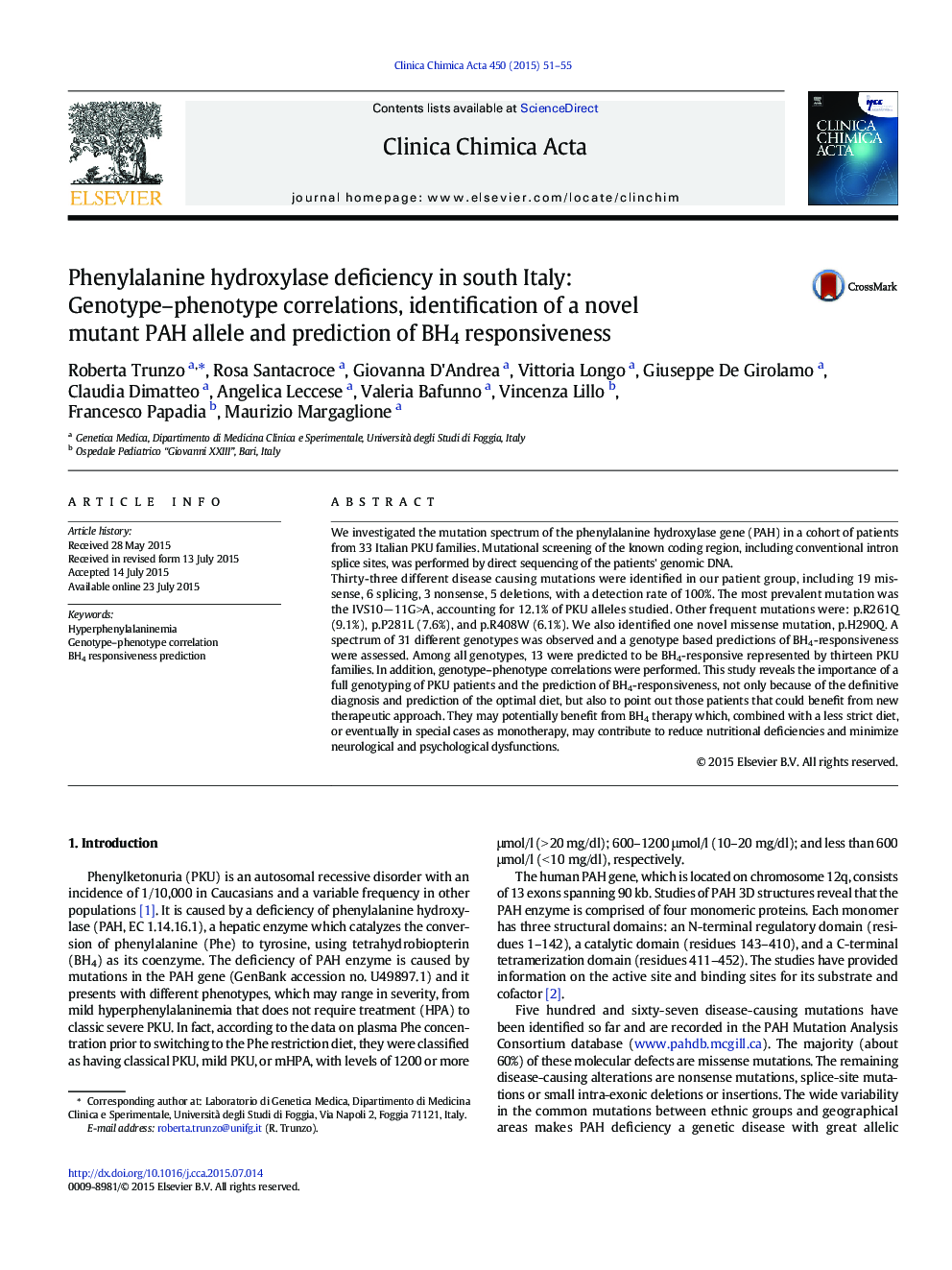| Article ID | Journal | Published Year | Pages | File Type |
|---|---|---|---|---|
| 1965210 | Clinica Chimica Acta | 2015 | 5 Pages |
•The molecular characterization of PKU patients appears to be a valuable tool for prognostic evaluation;•Complete genotype has greater value in estimation of BH4-responsiveness;•Complete genotype could be a useful tool in identifying those PKU patients who could take advantage of this treatment.
We investigated the mutation spectrum of the phenylalanine hydroxylase gene (PAH) in a cohort of patients from 33 Italian PKU families. Mutational screening of the known coding region, including conventional intron splice sites, was performed by direct sequencing of the patients' genomic DNA.Thirty-three different disease causing mutations were identified in our patient group, including 19 missense, 6 splicing, 3 nonsense, 5 deletions, with a detection rate of 100%. The most prevalent mutation was the IVS10−11G>A, accounting for 12.1% of PKU alleles studied. Other frequent mutations were: p.R261Q (9.1%), p.P281L (7.6%), and p.R408W (6.1%). We also identified one novel missense mutation, p.H290Q. A spectrum of 31 different genotypes was observed and a genotype based predictions of BH4-responsiveness were assessed. Among all genotypes, 13 were predicted to be BH4-responsive represented by thirteen PKU families. In addition, genotype–phenotype correlations were performed. This study reveals the importance of a full genotyping of PKU patients and the prediction of BH4-responsiveness, not only because of the definitive diagnosis and prediction of the optimal diet, but also to point out those patients that could benefit from new therapeutic approach. They may potentially benefit from BH4 therapy which, combined with a less strict diet, or eventually in special cases as monotherapy, may contribute to reduce nutritional deficiencies and minimize neurological and psychological dysfunctions.
